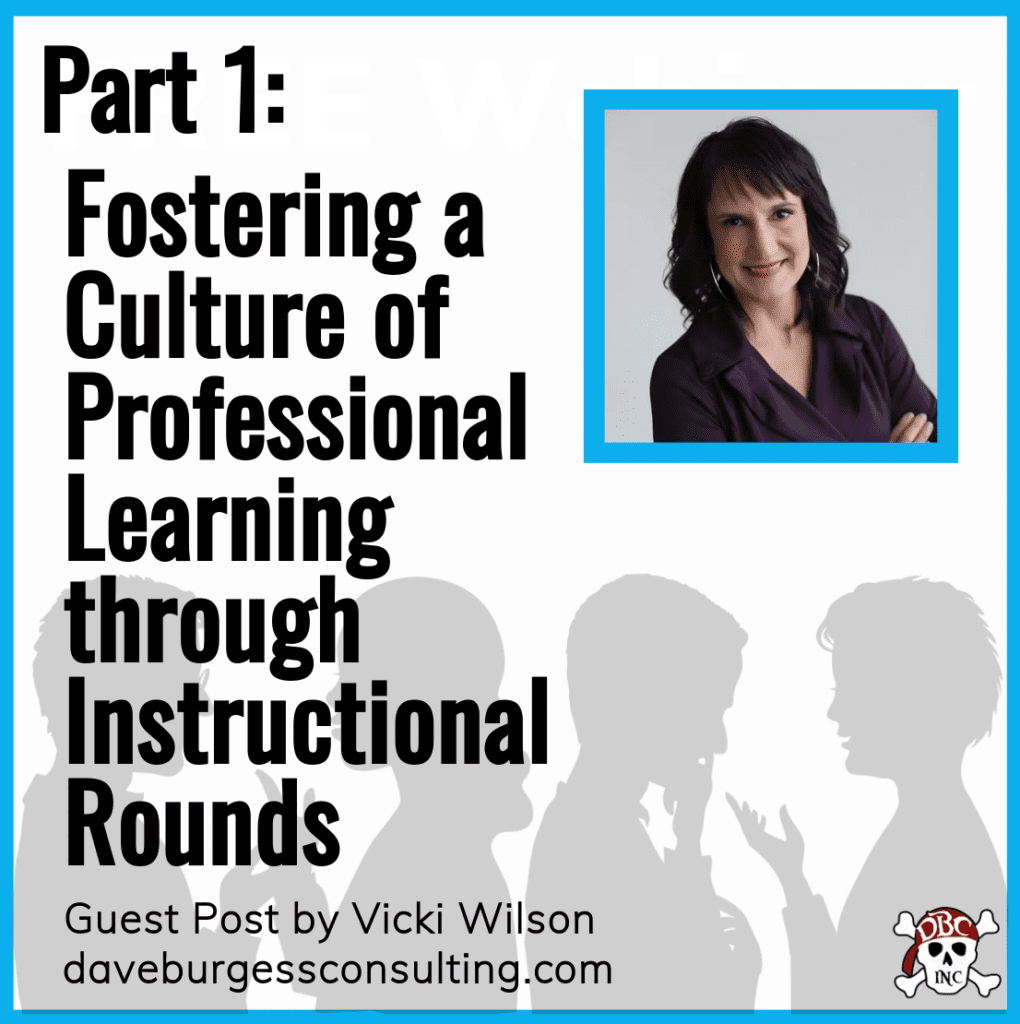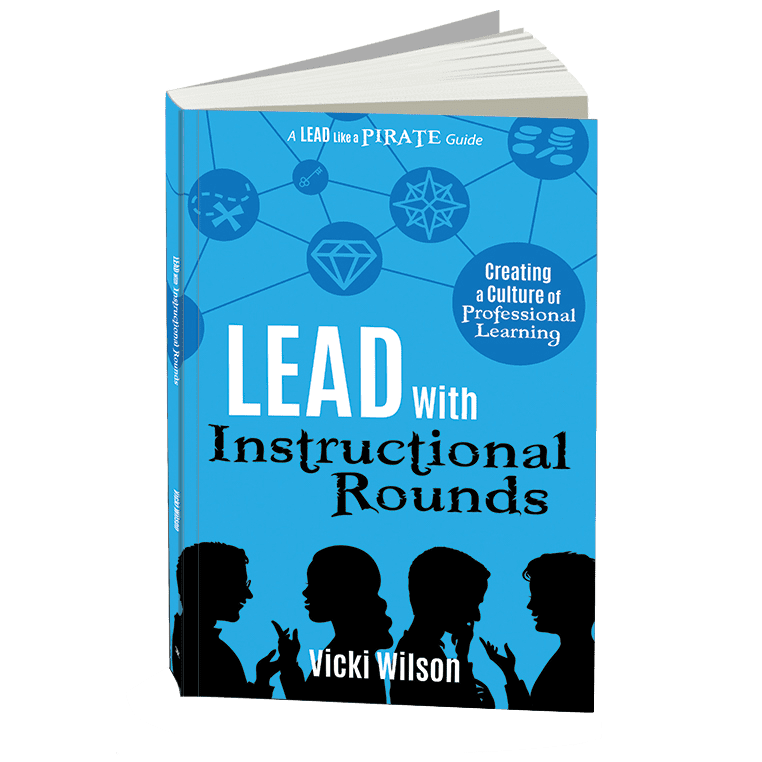Today's guest post is written by an educator who has served children and the field for over 28 years as a teacher and principal--Vicki Wilson. Vicki is passionate about education and strives to make it better every day. She is particularly interested in educator learning, leadership, organizational change, progressive and innovative practices in education, and leveraging best practices at school to improve so that all students get the best possible education.
Vicki is also an incredible wife, mom, and the outstanding DBC, Inc. author of Lead with Instructional Rounds!
We can't wait to learn from you, my friend!
Take it away.
Part 1: Guest Post by Vicki Wilson
Subtitles often go unnoticed, but they play a crucial role in conveying a book's essence. "Lead With Instructional Rounds" bears the subtitle "Creating a Culture of Professional Learning." This article dives into the concept of a culture of professional learning and how the instructional rounds approach contributes to its development.
I was recently digging through my Educational Leadership journals, I stumbled upon an article from March 2006 by Roland Barth. Barth, founder of the Harvard Graduate School of Education and the Harvard Principals' Center, outlined four categories of adult relationships in schools.
Parallel Play
Parallel play refers to a stage of child development where two toddlers play side by side with their own toys, but do not interact. It reminds me of the traditional silo structure of schools. Every year, teachers set up their classrooms, design their spaces, and prepare lessons. Then the children come, and we go into our silos with our students and teach. Next door is another silo, another class, another teacher - teaching. Across the hall is another silo, another class, another teacher - teaching. Each day teachers from all over go into their silos and work in isolation - concealing what they do and having no opportunity to learn from each other. Without regular, intentional practices of collaboration in place in our schools, we can easily fall into parallel play.
Adversarial Relationships
These relationships aren't always overt conflicts but can be more subtle, involving withholding information or not sharing valuable insights. Educators possess a wealth of knowledge gained through experience, often referred to as craft knowledge. Imagine the growth potential if sharing this craft knowledge became a norm in schools. Unfortunately, practices like comparison, ranking, rating, and competition can lead educators to keep their best strategies to themselves. When a teacher shares a successful idea, the response from peers can determine whether they continue to share or retreat into isolation.
Congenial Relationships
Many schools are fortunate to have friendly and positive environments where adults enjoy one another's company. They eagerly look forward to interactions and sharing lunch or coffee breaks. While congenial relationships are essential, they are a prerequisite for the most coveted type.
Collegial Relationships
Collegial relationships are the hardest to achieve and the rarest in schools. These relationships exist when educators regularly gather in a positive setting to learn from and with each other, striving to improve their practices. This is precisely what constitutes a culture of professional learning. Roland Barth outlines four key practices of educators in collegial schools:
- Talk with each other about their practice.
- Share their craft knowledge.
- Observe one another while they are teaching,
- Root for one another's success.
The approach in "Lead with Instructional Rounds: Creating a Culture of Professional Learning" takes a school on the journey to become a school full of professionals with collegial relationships. The process is structured to create psychological safety, enabling a group of teachers to reflect on and assess their own practices as they conduct brief classroom observations of their colleagues. During these observations, participating teachers identify strong and effective instructional practices from their colleagues and the impact on student learning. Following each observation, a facilitator poses reflective questions that promote positive discussions about high-impact instructional strategies and craft knowledge.
The strength-focused approach cultivates an atmosphere of admiration, akin to Brene Brown's description in "Atlas of the Heart: Mapping Meaningful Connection and the Language of Human Experience."
Brown writes...
We feel admiration when someone's abilities, accomplishments, or character inspires us. Interestingly, admiration often leads us to want to improve ourselves. It doesn't, however, make us want to be like the person or thing we admire – we just want to be a better version of ourselves.
Imagine a school with an internal and strength-focused structure that regularly conducts instructional rounds, fostering positive conversations about effective practices and craft knowledge. Imagine teaching and learning in such an environment. The vision of a thriving culture of professional learning becomes tangible, offering boundless opportunities for individual and collective professional growth.
Thank You, Vicki!
Thanks, Vicki! Loved your post!
If you haven't already, follow Vicki and learn more from her by clicking these links Twitter HERE and her website HERE.
And, don't forget to preview her amazing DBC, Inc. Book, Lead with Instructional Rounds for FREE by clicking the book title or book image. (Scroll to the bottom of the page and click Preview.)






